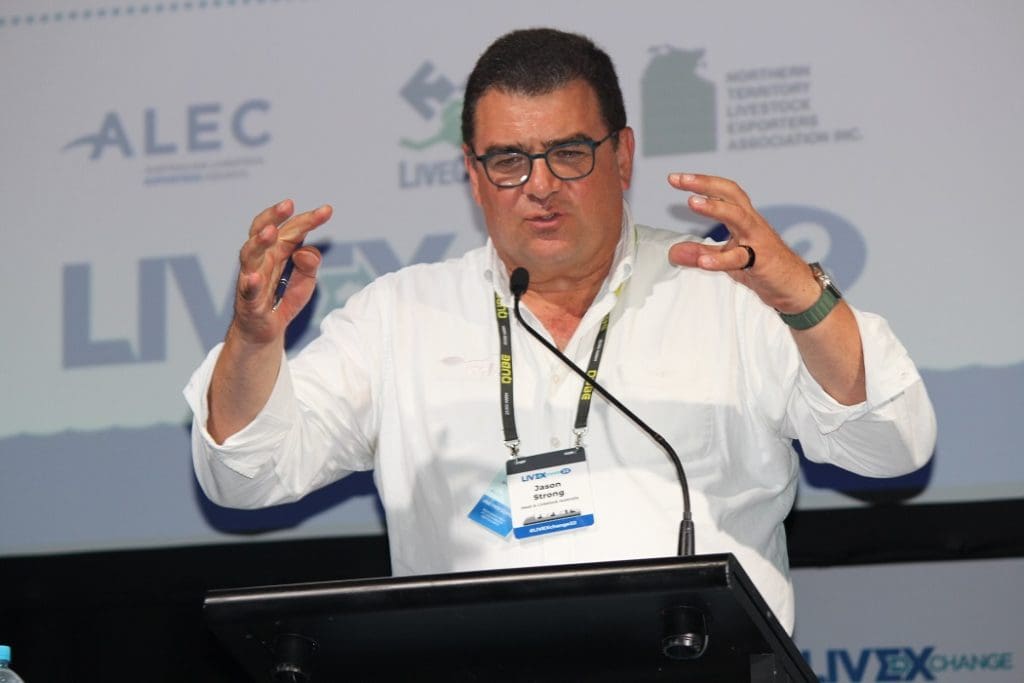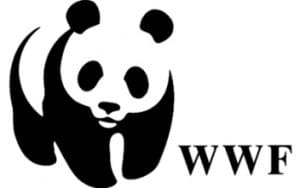
MLA managing director Jason Strong at the LIVEXchange 2022 conference in Darwin.
FORMER Meat & Livestock Australia managing director Richard Norton, his board and an anonymous ‘panda guy’ mate were lauded for their roles in the Australian red meat sector’s path to carbon neutrality, by incumbent MLA leader Jason Strong last week.
At the LIVEXchange 2022 conference in Darwin, Mr Strong, presented on ‘Red meat: solving the climate challenge’ and the pathway to CN30, the industry target of carbon neutrality by 2030.
Mr Strong said carbon neutrality by 2030, or CN30, was a goal set in 2017 at the MLA AGM and it had been interesting seeing the progression of how that’s perceived by the industry.
“And there’s that saying that success has many fathers but failure is an orphan.
“When people ask what’s the most important single thing that’s actually been done for the red meat sector around positioning ourselves in this climate space, it was Richard Norton standing up at the AGM and saying ‘based on the CSIRO report which says that with the right investment, research and development, and the right policy environment, the red meat sector can be carbon neutral in ten years.. and they set a goal of 2030,” Mr Strong said.
“At the time there were many people, and anybody who is really honest with themselves, probably all of us, certainly me, were pretty sceptical and thought ‘what a crazy thing to do’.
“But it was incredibly brave and now the number of people that are very proud, grateful, appreciative of the fact that we’ve had a four or five year run in to an issue that’s now becoming very very important and probably more for others, it is an incredibly important thing for us to remember,” he said.
“I think it is one of those demonstrations of what we do as an industry and how we can use our industry organisations like MLA to set ambitious goals to try and find ways to set us up in the best possible way that we can to deliver against those.
He said now with the broader global discussions on sustainability, the “run up” in the carbon space put the sector in “incredibly good shape” as how to be a good example of driving an improved relationship with the environment through measures that are largely productivity-driven.
“And that’s an important component of how I think about things going forward.
“Carbon neutrality, the CN30 goal, it doesn’t need to come at the cost of livestock numbers or sector productivity and it is actually as much about building and growing productivity to help provide those solutions as well.
He said this involved finding a suite of solutions to reduce sector emissions and for carbon storage.
“There isn’t going to be a silver bullet.”
He said five years ago the industry didn’t think it was possible to reduce ruminant methane emissions, but there were now multiple commercial products, with trials indicating some could achieve reductions of 90 percent through supplements.
“We’ll find ways as an industry to apply these things that give us benefit.”
Soil carbon and the panda guy
 On the breadth of views on soil carbon sequestration, Mr Strong spoke of unsolicited emails from two staff members with differing opinions that its potential was “overblown” versus “I think this actually might solve the whole problem all by itself.”
On the breadth of views on soil carbon sequestration, Mr Strong spoke of unsolicited emails from two staff members with differing opinions that its potential was “overblown” versus “I think this actually might solve the whole problem all by itself.”
Later that week he was talking to a mate who said the problem was that there was not enough evidence to support either of those views, “however, we believe there is something in this and it’s actually something we should focus on as an industry…”
Now years later Mr Strong said the sector knows that soil carbon sequestration is going to be helpful.
“But the really interesting thing is that the third guy I spoke to worked with WWF (World Wildlife Fund) … the most reasonable bloke I spoke to that week was the panda guy.
“So we’ve got to be really conscious of the breadth of views and let’s just be really clear that’s not where we go as a source of information as a starting point, we absolutely go with productivity in how we actually drive things forward,” he said.
He said his ‘panda guy’ story was a good reminder that it was early days and the solutions would be incredibly sophisticated, not easy but hard, and would take time and commitment.
“As an industry, we are further advanced down that path than anybody else.”
He said the industry is too often unfairly criticised or maligned, with cows unfairly maligned because they were recognisable.
Mr Strong said the most important message that could come from the 2022 United Nations Climate Change Conference COP27 meeting is that “animal agriculture didn’t create the problem, but we are absolutely part of the solution.”
“The Australian red meat sector is actually the gold standard for how an industry can be profitable and productive and create greater sustainability for the industry as far as longevity in its ability to produce high quality food for our customers and clients around the world and consumers, but also reduce our impact on the environment or impact that in a better way.”
“So how we go about telling that story will be incredibly important,” he said.
“But the message has to be: animal agriculture did not create this problem and it is absolutely part of the solution.
“It’s actually one of the best solutions, and it’s actually one of the only solutions that is already demonstrating how you can actually do that.”



HAVE YOUR SAY